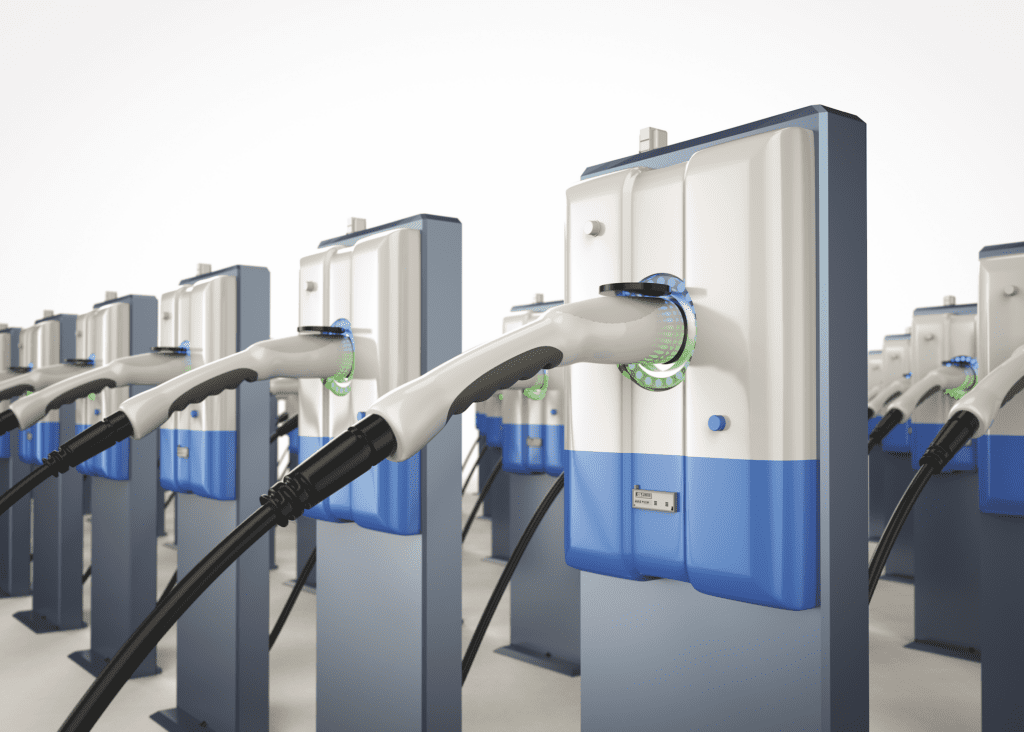Sager Electronics’ director supplier marketing & product management, Pam Berigan, highlights purchasing’s key role during the design and manufacture of EV charging solutions

The global electric vehicle (EV) market is projected to be half of global car sales by 2035. With increasing focus on charging infrastructure development to support the expanding EV fleet, demand for electronic components critical to charging station functionality is also rising. Charging station design includes power supplies, connectors, cables, microcontrollers, voltage/ current sensors, relays, sensors, semiconductors and user interface components.
Purchasing plays a primary role in the EV charging design process, ensuring growing demand for electronic components is met, while the products sourced provide smooth and efficient charging station operation. However, purchasing managers face challenges sourcing, procuring and managing these parts. From supply chain disruptions, cost management, quality assurance and rapid technological advancements, procuring the right product at the right time and right price has grown increasingly difficult.
A significant challenge purchasing managers face is supply chain disruptions. These can be caused by factors including global events, geopolitical tensions and natural disasters. Notably and dramatically, the Covid-19 pandemic highlighted supply chain vulnerabilities. A shortage of key electronic components due to raw material shortages, transportation delays and extensive lead times significantly impacted the manufacture, deployment and maintenance of EV charging stations at a time when many major vehicle manufacturers signaled plans to transition to zero emission vehicles.
Relying on key channel partners and authorized distributors for essential components can help mitigate the impact of supply chain disruptions while keeping costs in check. Trusted partners can help reduce potential interruptions in product flow while reducing carrying costs and minimizing the impact of manufacturer price increases and escalating shipping costs. By keeping abreast of global events and industry trends, stocking critical electronic components and offering tools, inventory programs and resources to ensure consistent and transparent communication, a partner can minimize problems even in challenging times.
Ensuring component quality and reliability is paramount. Charging stations supply electricity to the EV battery, creating a potential environment for electrical hazards such as overheating, short-circuiting or electrical arcing. A charging station’s control board is the brain, detecting possible irregularities or ensuring the EV battery is operating safely and efficiently. Evaluating component quality—to ensure it meets Government-approval standards—from various suppliers is time- consuming and requires thorough testing and analysis. Experienced authorized distributors have already completed this vetting process, offering reputable manufacturers a proven track record of delivering high-quality components.
The EV charging industry is marked by rapid technological advancements and choosing chargers with the most innovative components is important. New components and features are constantly being introduced, requiring purchasing managers to stay abreast of the latest innovations and integrate them into their procurement processes when appropriate. Many newly released components may be pending government approvals, require high MOQ and have possible long lead times. Working with the right partner can help a purchasing manager navigate these considerations.

